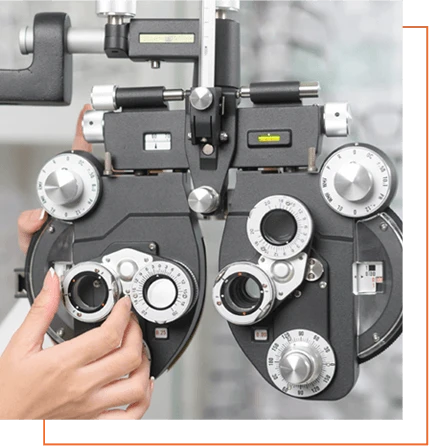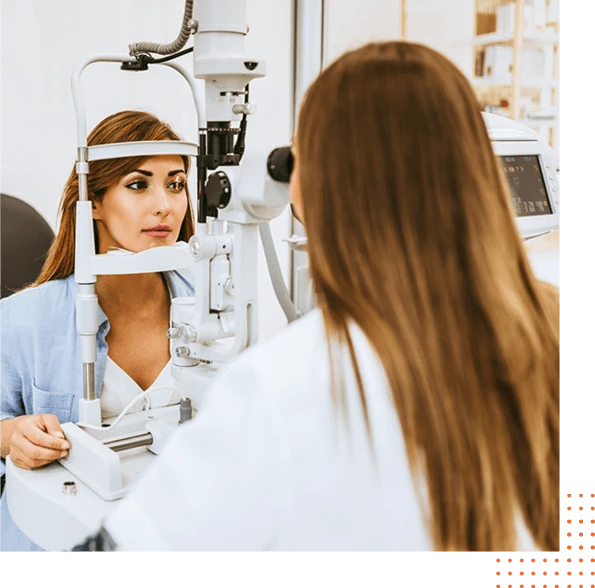Comprehensive Eye Exam
At Eyes on Brickell, our professional, Dr. Antoine Copty, understands the crucial role of comprehensive eye exams in preserving optimal eye health. Our comprehensive eye exam in Miami go beyond routine check-ups, providing a thorough evaluation of your vision, eye health, and overall well-being. Using the latest technology and methodologies, we ensure full inspection, early identification, and personalized treatment tailored to your specific needs.
During our complete eye exams, we use cutting-edge technology and processes to evaluate different aspects of your eye health, such as visual acuity, eye muscle coordination, and refractive errors. Furthermore, we highlight the comprehensive dilated eye exam, which uses specialist eye drops to dilate your pupils and allow for a thorough inspection of the inner structures of your eyes.

What is Comprehensive Ophthalmic Exam With Dilated Fundus Exam?
A comprehensive eye exam is a detailed and non-invasive assessment of your eye health, visual abilities, refraction, and medical history, performed by an optometrist or ophthalmologist. This thorough evaluation includes a series of tests to check for any potential eye diseases or conditions, such as a comprehensive medical history review, visual acuity testing, eye muscle movement, and coordination evaluation, refraction to determine the need for glasses or contact lenses and a thorough examination of the structures inside and outside the eye.
During the comprehensive dilated eye exam, eye drops are used to dilate the pupils, which allows the eye doctor to view the inside of the eye more clearly.
The dilated fundus exam involves the use of a specialized instrument called a binocular direct ophthalmoscope to examine the retina, optic nerve, and blood vessels at the back of the eye. The goal of a comprehensive eye exam in Miami is to identify any potential eye problems or medical diseases that may impact your vision and to provide early detection and treatment to prevent permanent vision loss. It is recommended that individuals receive this type of exam on a regular basis, with the frequency depending on age, medical history, and other risk factors. On average, every individual should get an eye exam every year, especially children between the ages of 1-18 years old.
Benefits of Comprehensive Eye Exam
Regular eye exams are essential for maintaining healthy vision and preventing vision loss or blindness. These exams are particularly important because they can detect eye diseases or conditions that may not have any noticeable symptoms, such as glaucoma, macular degeneration, cataracts, and diabetic retinopathy. Additionally, a complete eye exam can also identify other health problems such as high blood pressure, diabetes, and multiple sclerosis.
By detecting these conditions early, treatment can be started sooner, which can improve outcomes and prevent complications. Thus, testing your eyes is an important part of maintaining overall health & wellness and can help prevent permanent vision loss.

When Should One Take This Test?
Symptoms
Looking for discount eye exams near me in Brickell? We are just one call away or you can book your appointment online as well as in person.



